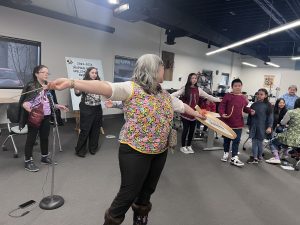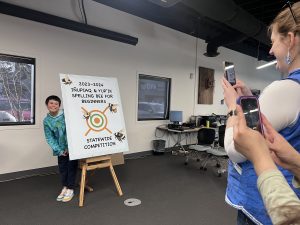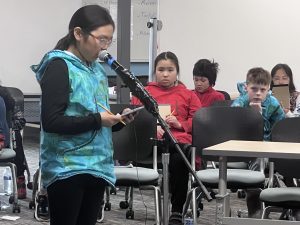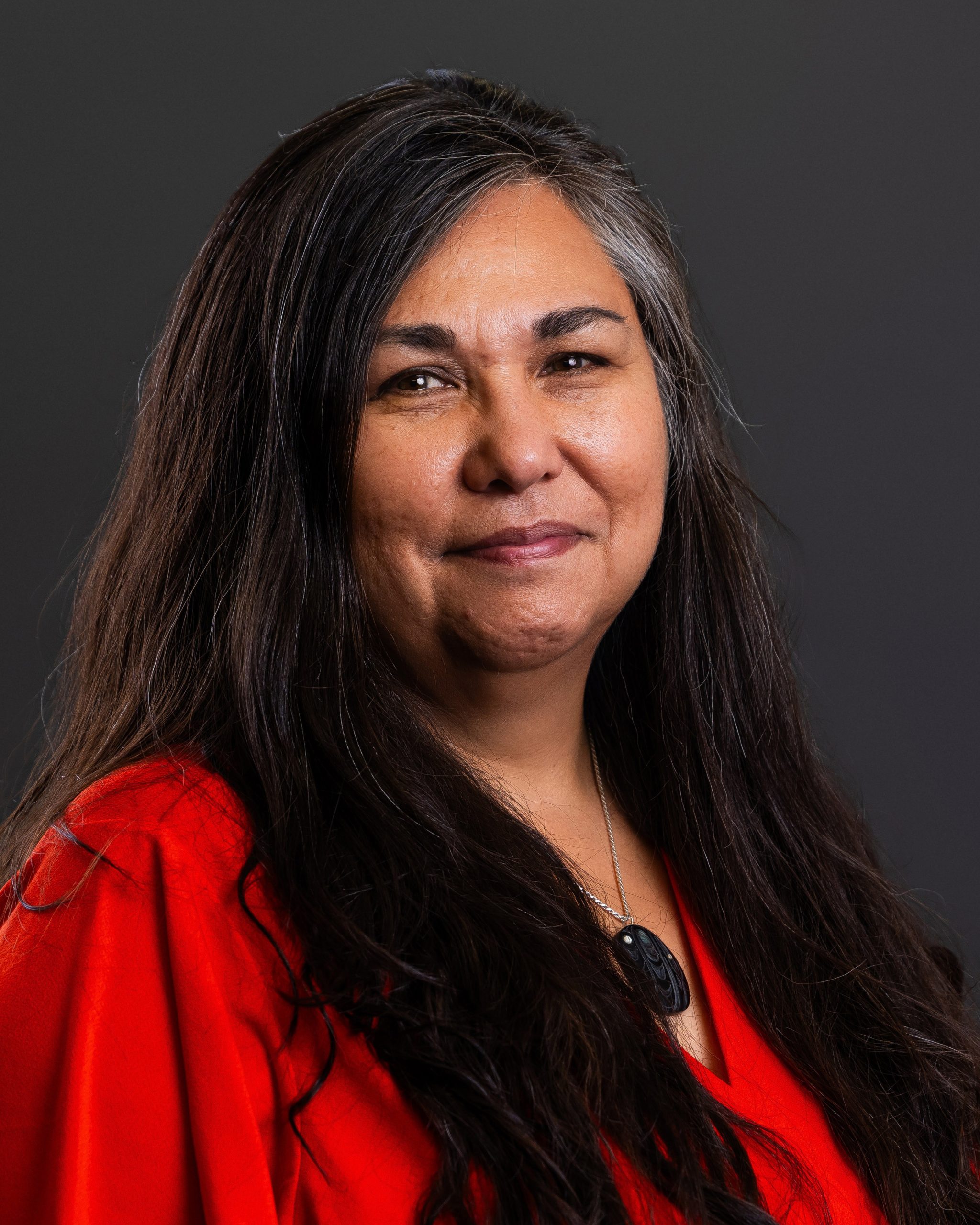Podcast: Play in new window | Download | Embed
A federal agency wants to give up management of lands on the Wind River Reservation.
As Wyoming Public Radio’s Chris Clements reports, the Northern Arapaho and Eastern Shoshone Tribes have argued it never should have been removed from the reservation in the first place.
The Bureau of Reclamation is trying to part ways with under sixty-thousand acres of federal land originally removed from the reservation as part of the Riverton Reclamation Project.
Located on Muddy Ridge, the land could go to the U.S. Bureau of Land Management (BLM) or to local interests like the Eastern Shoshone and Northern Arapaho Tribes.
Wes Martel is a former councilmember of the Eastern Shoshone Tribe.
“There should be no question that that land reverts back to the tribes. We’re going to stand up for ourselves.”
Non-tribal ranchers have grazing leases on Muddy Ridge for cattle, and are worried about changes to how it’s managed if the tribes receive it.
A recent news report says ranchers believe that if the Bureau of Indian Affairs manages the land, they could impose different grazing regulations.
In a federal court case from 2014, both tribes argued that areas north of the Wind River like Muddy Ridge are lawfully part of the reservation.
However, the 10th circuit court of appeals eventually ruled against them.

Courtesy Facebook
Canada’s top Native leader says she was stunned by her treatment of the country’s national air carrier – Air Canada.
As Dan Karpenchuk reports, the Assembly of First Nations national chief says it was hurtful the way her headdress was dealt with on a flight.
Cindy Woodhouse Nepinak is the National Chief of the Assembly of First Nations.
She says she’s traveled before with her headdress and without any problem.
But last week, she boarded a plane in Montreal and carried her headdress in a special case, which she usually places in the overhead compartment.
This time she stowed it under the seat in front of her because the overhead compartment was full.
The Air Canada flight staff told her the case would have to be into the cargo hold.
From there she says things got pretty heated.
She refused to give up her headdress, but flight attendants insisted the case go in cargo, then she didn’t get it back until he pilot intervened and it was brought to her.
“I think we were all pretty stunned. It was an unfortunate incident and I just hope nobody else ever has to feel like that again. I know it was a tough, tense situation, but I think it’s a learning lesson on how to work together better and I think when it comes to Air Canada this stuff isn’t new.”
Even Prime Minister Justin Trudeau commented on the incident.
“It is an unfortunate situation that I hope will lead to a bit of learning.”
Air Canada has since apologized and says it will review its policy.

Tahquamenon Falls State Park in Michigan’s eastern Upper Peninsula. (Courtesy Pure Michigan)
The Sault Ste. Marie Tribe of Chippewa Indians in Michigan has passed a new resolution recognizing nature’s inherent rights.
Interlochen Public Radio’s Ellie Katz reports.
It’s the first step toward changing the tribal code with the ultimate goal of eventually establishing the legal rights of nature in court.

Amy McCoy. (Courtesy Amy McCoy / LinkedIn)
Amy Aamoo McCoy is a Sault Ste. Marie tribal member who first drafted the resolution.
She says it codifies the long-held responsibility that the Anishinaabek have to nature.
“Those beings need to be respected, not relegated as resource commodities. They need to be cared for, respected, protected. And now that’s the law.”
Other tribal nations throughout Michigan are considering similar resolutions.
It’s part of a broader movement among Indigenous communities that seeks to extend the same legal rights to nature that individuals and corporations already have.
McCoy says this initial resolution should make it easier to pass more tribal environmental protection laws in the future.
Get National Native News delivered to your inbox daily and stay up-to-date on the 2024 Native Vote. Sign up for our daily newsletter today.

 After three days of competition at the statewide Native Youth Olympic (NYO) Games in Anchorage, students have returned home to show off their medals for traditional games like the Two-Foot High Kick, the Kneel Jump, and the Seal Hop.
After three days of competition at the statewide Native Youth Olympic (NYO) Games in Anchorage, students have returned home to show off their medals for traditional games like the Two-Foot High Kick, the Kneel Jump, and the Seal Hop.


 The National Partners Work Group on Missing and Murdered Indigenous Women (MMIW) and the MMIW Family Advisors are raising awareness of missing and murdered Indigenous people (MMIP) through a week of advocacy – now through May 5.
The National Partners Work Group on Missing and Murdered Indigenous Women (MMIW) and the MMIW Family Advisors are raising awareness of missing and murdered Indigenous people (MMIP) through a week of advocacy – now through May 5. Friendship House founder, the late Helen Waukazoo, was a close friend of Judge Abby.
Friendship House founder, the late Helen Waukazoo, was a close friend of Judge Abby.




 The Native Youth Olympic Senior Games literally kick off Thursday in Anchorage, Alaska.
The Native Youth Olympic Senior Games literally kick off Thursday in Anchorage, Alaska.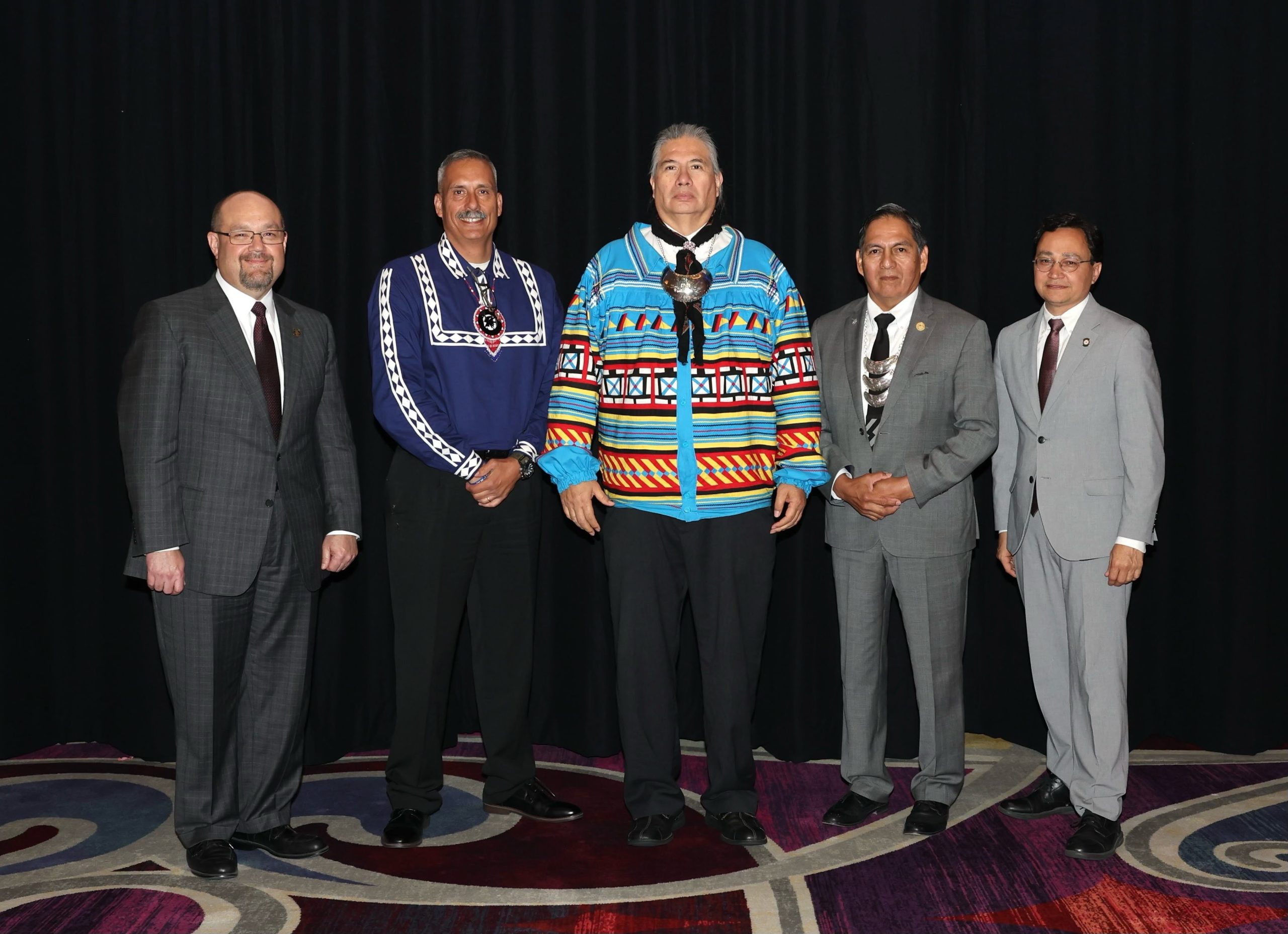
 The Mashantucket Pequot Museum and Research Center in Connecticut has reopened after construction.
The Mashantucket Pequot Museum and Research Center in Connecticut has reopened after construction.



